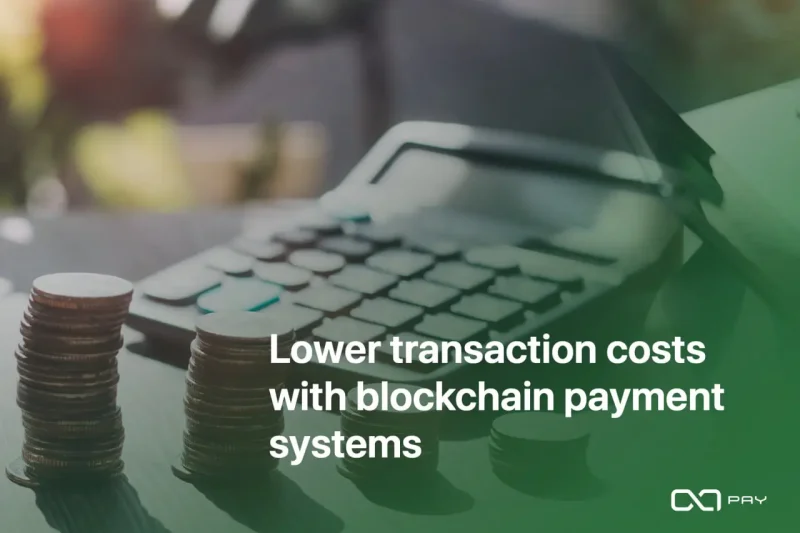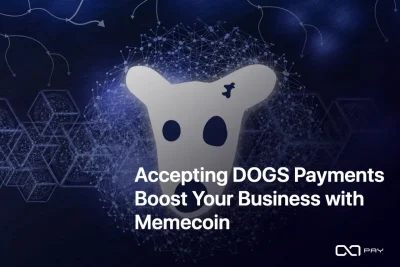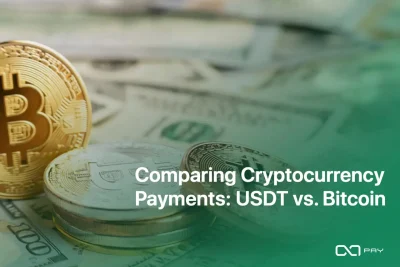Are high payment processing fees cutting into your business’s profits? What if you could lower those costs while speeding up transactions? Blockchain payment systems are gaining attention not just for their security, but for their ability to reduce payment processing fees. But how does it compare to traditional payment methods? In this article, we’ll explore how blockchain can lower costs, how they stack up against conventional payments, and what benefits they can bring to your business.
Analysis of Cost Reduction Through Blockchain
Blockchain payment systems cut costs by streamlining the transaction process. They eliminate the need for traditional intermediaries like banks and payment processors, reducing the fees businesses and consumers usually pay. The decentralized nature of blockchain also speeds up transactions, which helps lower costs related to delays and currency exchange in international payments.
Comparing Costs: Blockchain vs. Traditional Payments
Traditional payment systems rely on multiple intermediaries, which add layers of costs. These include transaction fees and administrative expenses for account management and dispute resolution. In contrast, blockchain payment systems usually have lower fees because they process transactions directly between the sender and receiver, without intermediaries. For example, while an international wire transfer might cost $20 to $40 or more, a blockchain transaction can be much cheaper.
Exploration of Fee Structures in Blockchain Transactions
Fee structures in blockchain transactions vary by network and type but are generally lower than those in traditional financial systems. For instance, in networks like Bitcoin, the bitcoin fee depends on the size of the data transmitted rather than the transaction’s value, which can significantly reduce costs for large transactions. Ethereum calculates fees based on transaction complexity and current network demand, known as gas prices.
Economic Implications of Lower Transaction Costs
The reduction in transaction costs offered by blockchain payment systems can have profound economic implications. For businesses, lower fees can lead to substantial savings, especially for those engaged in frequent or high-volume transactions. These savings can be passed on to consumers in the form of lower prices or reinvested into the business to fuel growth and innovation. Moreover, reduced transaction costs can encourage new participants to enter the market, enhancing competition and promoting economic diversity.
Role of Automation in Reducing Costs
Blockchain frequently incorporates automation through smart contracts, self-executing contracts with terms directly written into code. These contracts automatically perform transactions and other actions once predefined conditions are met, reducing the need for manual intervention and thereby further cutting costs. This automation not only speeds up transactions but also minimizes human error, contributing to overall cost efficiency.
Factors Influencing Cost Efficiency in Blockchain Transactions
Several factors influence the cost efficiency of blockchain payment systems, such as network congestion, transaction size, and the efficiency of the blockchain protocol. Optimizing these factors helps reduce costs even further. Newer blockchain technologies like Solana and Cardano improve on older systems by offering faster transactions and lower costs. These advancements highlight the ongoing progress in blockchain payment solutions.
The Necessity of Blockchain Payment Processors:
While blockchain technology offers substantial cost savings in payment processing, the practical application of these systems in a business environment can present challenges that may counteract these benefits. Direct blockchain payments, while theoretically ideal, require technical expertise, incur high developmental costs, and can introduce complexities in daily operations.
Integrating a Reliable Blockchain Payment Processor:
Utilizing a blockchain payment processor like OxaPay effectively bridges the gap between the theoretical cost-efficiency of blockchain and the practical needs of daily business transactions. Here’s why integrating a reliable and efficient blockchain payment processor is crucial:
- Reliability and Efficiency: OxaPay ensures that transactions are processed quickly and reliably, which is essential for businesses with a high volume of transactions.
- Security and Compliance: OxaPay provides stringent security measures and manages compliance with regulatory requirements, reducing the burden on businesses.
- Ease of Integration and Use: OxaPay provides tools and services that integrate easily with existing business systems. This allows businesses to use blockchain payment systems without requiring deep technical expertise.
- Cost-Effective Access to Blockchain Technology: OxaPay provides an affordable way to access the benefits of blockchain payment solutions. It eliminates the need to develop and manage a custom system, reducing both costs and complexity.
Implementation of a Blockchain Payment Processor
Integrating a blockchain payment processor like OxaPay involves selecting the appropriate service, aligning it with your transaction needs, and seamlessly connecting it with your existing systems. This streamlined approach ensures that you can start leveraging the cost-saving benefits of blockchain efficiently and effectively.
Conclusion
Blockchain technology offers a strong solution for businesses looking to reduce transaction costs. By using blockchain payment systems, companies can improve their operations and gain a competitive edge. Partnering with OxaPay blockchain payment processor gives businesses access to blockchain’s advantages. It ensures fast, secure, and convenient transactions, which are crucial for modern businesses. With OxaPay, companies can benefit from lower costs and greater efficiency without the hassle of managing the technology themselves.




